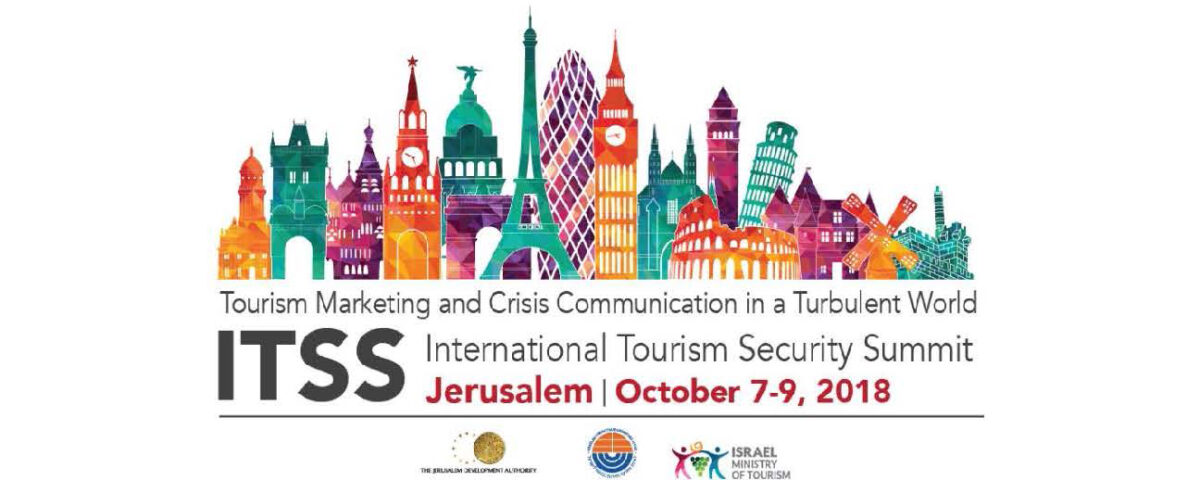The Theatre of Terror

Time after time, in every city and continent “The Theatre of Terror” looks for stages to perform their acts: blood, panic, ambulance wailing, media cameras, fear, anxiety, wounded etc.
In recent years, terror has become a global issue reaching almost every metropolis worldwide. In most cases – terror incidents occurred in Capitals and holiday resort locations. Without this theatre stage – Terrorism cannot achieve its goal, so it must evolve and change its disguise, change its continents, countries, targets, methods and how it uses the new technology to its advantage – choosing always to be in the floodlights on the main stages in which the audience is bigger and both the message and damage reverberate in a wide-scale.
The repeated occurrences of terror to the most beloved capitals are not random, sowing fear has a major impact when it hits not only citizens and governments – but also millions of tourists planning their future vacations in the same destination.
After 9/11 in New York City and a string of other terror attacks in America, Europe now must tackle the “octopus” of fundamental terrorism who strikes and threatens cities such as Paris, London, Belgium and many others. Terrorism targets mostly countries with many tourists, hotels and destinations, aiming to undercut the security, agendas, economy and to take over the media- in order to spread fear, discouragement and deter foreign investors.
Security incidents have extensive impacts and implications on incoming tourism. The descent in tourism is felt months after the attack, affecting cities which weren’t directly affected by terror in the past – causing them significant financial damage. According to data collected about the number of tourists visited popular capital cities in Europe during 2016 (the year in which global terrorism was on its biggest rise in the last decade) – the number of tourists considerably decreased. The finding demonstrates an 18% drop of tourism in Brussels, after 3 suicide bombings in the city in March and a 14% drop in incoming tourism in Paris – after November 2015 Terror attacks. Specialists estimate that the financial effects on the economy sums up to 750 million$. These examples demonstrate the correlation countries should see between security and tourism. Capital cities like Paris, London and Brussels have experienced major strikes on their incoming tourism. The contemporary Terrorism is a transverse issue and hits the cities arteries – destroying incoming tourism and economy. The Damage is not just financial – but mostly hurts the city’s image and reputation. The terror attacks and other national crises as well as the neglecting of the touristic aspect – the capital cities worldwide suffer from negative reputation that can potentially reduce their global value.
The city of Jerusalem, who will host the first International Tourism Security Summit on October 7-9, 2018, is challenged by terrorism – Unfortunately, Israel has rich experience and history regarding counter terrorism.
In its 70 years “The Holy Land” and its capital, Jerusalem, which has holy sites for 3 major religions and therefore many attractive tourist locations, has suffered by seven wars, several counter terrorism operations and thousands of terrorist attacks that have exacted a heavy toll from Israel: malls, suburbs, markets, airports and many other locations.
Israel, which implemented a “no surrender” to terrorism model to the world in the 70’s, as they released the “Air-France” hostages from Entebbe and later released with a military operation the “Sabena” flight hostages, needed to develop intelligence, methods and technology for counter terrorism. While reducing the “friction zone” of security from the day-to-day lives of the citizens and tourists. During the last decade and considering the current geo-political situation Jerusalem has adapted tools for coping with national crises and returning tourists to the city. The influence was immediate: the current data demonstrates a 47% increase in the incoming tourism to Jerusalem, in spite of the terror attacks in the area.
The decision to hold a conference in Israel concerning this important subject was made under the terrorism threat. The concept of Israel and other countries which deal with the aviation and tourism industries demand for global solutions that rest on helping hands and the willingness of everyone to share information, experience, technologies and lessons. Besides the cooperation between nations about intelligence, operations and stopping terrorism funding, we must learn how to handle terror crises or other mass disasters; How to guide tourists, the media? and how to handle the crisis? Which strategies and in what messages? Our extensive experience has a lot to offer.
Each city and country should have a contingency plan: not only rules of engagement, search warrants or locking lanes but also an ’emergency kit’ for coping with ‘touristic terror’ – targeting audience, back to ‘business as usual’ method as soon as something happens, while insisting on planned events properly, clarity, question rapid response and many other essential tools.
Only by Sharing both knowledge and collective experience, we will prevent the touristic terrorism to set the tone and will decrease its tremendous strike upon the field of tourism.
Brigade General (Rit General) Avi Bneiyahu
Strategy, media and crisis management consultant
Former IDF Spokesperson and Commander of “Galey-Tzahal” (IDF radio station)
Ilanit Melchior
The Jerusalem Development Authority